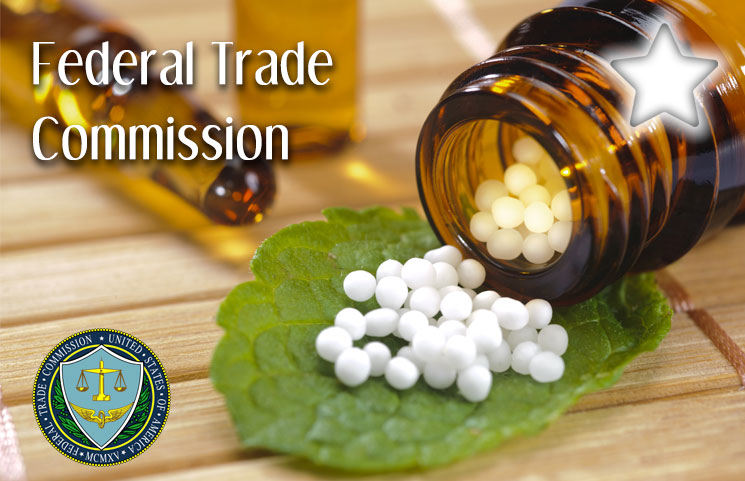The Federal Trade Commission announced this past week that it was going to crack down on homeopathic advertising, claiming that homeopathic drugs should “be held to the same truth-in-advertising standards as other products claiming health benefits.”
For years, the Food and Drug Administration has largely ignored the homeopathic drug industry. Forbes.com writes that the FDA “fears to tread” on the industry and that the FTC “deserves a robust round of applause” for announcing their intentions to crack down.
Here’s the problem: the FTC can’t actually prevent homeopathic marketers from selling their products. That’s a power held only by the FDA.
However, starting very soon, the FTC will require homeopathic drugs to include the following two statements somewhere on their packaging:
- There is no scientific evidence backing homeopathic health claims
- Homeopathic claims are based only on theories from the 1700s that are not accepted by modern medical experts
In some industries, such warnings would lead to a huge decline in sales. However, industry analysts claim that the homeopathic drug industry might not suffer as much because most homeopathic drug users do not trust modern medicine.
In fact, some may believe this will actually increase sales in the homeopathic industry. Homeopathic users will look at the “1700s” label and think that if a drug has been around that long then it must work – despite the fact that old medicine is rarely good medicine.
Fortunately, the FTC wasn’t satisfied with just adding the above two statements to homeopathic drug labels. They’ve also issued a recommendation to the FDA to “subject homeopathic drugs to the same regulatory requirements as other drug products”. However, the FTC can’t actually force the FDA to do that.
Have Homeopathic Drug Makers Lied in the Past?
One of the weirdest things about the homeopathic drug industry is that there’s no requirement for the drug makers to be truthful. The FDA (which is the agency in charge of regulating drugs in the United States) struck a unique deal with the homeopathic drug industry back in 1988.
As part of that deal, the FDA allowed homeopaths to be self-regulating, as long as they included a disclaimer that their claims had not been evaluated by the FDA.
As one analyst explains, the FDA’s agreement with homeopaths was “basically a license to lie.” You can read the FDA’s official statement on the matter here.
One of the best examples of this is in the popular homeopathic drug Oscillococcinum, which for all intents and purposes is a sugar-pill. The drug’s packaging claims that the drug “temporarily relieves flu-like symptoms such as body aches, headache, fever, chills and fatigue” – despite the fact that there’s no evidence the supplement formula has good benefits.
Homeopathic Drugs Are a Multi-Billion Dollar Business
Despite the lack of scientific evidence behind homeopathic drugs, they remain an enormous industry. The FDA estimated that Americans had spent $2.9 billion on homeopathic remedies in 2007 (the last year numbers were reported).
Many people swear by the remedies. Even though there’s no scientific evidence supporting homeopathic drugs, it’s easy to find people who say things like “It worked for me”.
Do Homeopathic Drugs Actually Work?
If you want to believe in the effectiveness of homeopathic drugs, then you need to suspend a lot of the things you know about modern physics and chemistry. The key foundation behind the effectiveness of homeopathic drugs is based on the fact that:
-Infinite dilutions of a substance (even to a point where no single molecule remains) have some medical benefit
-Water “remembers” substances that have previously been inside it in the past
-A substance that causes one symptom can actually cure that symptom when diluted (poison ivy, for example, causes itching but can cure itching when diluted)
As one expert explained, “these claims violate basic principles of physics, chemistry, and biology”.
Homeopathic drugs will soon be required to use the labels listed above. That could change the way some people buy homeopathic drugs – but it’s not likely to have a significant impact on sales. The most important development in this situation is the fact that the FDA could step in to regulate the homeopathic industry – a move that could totally change the way the industry operates.









